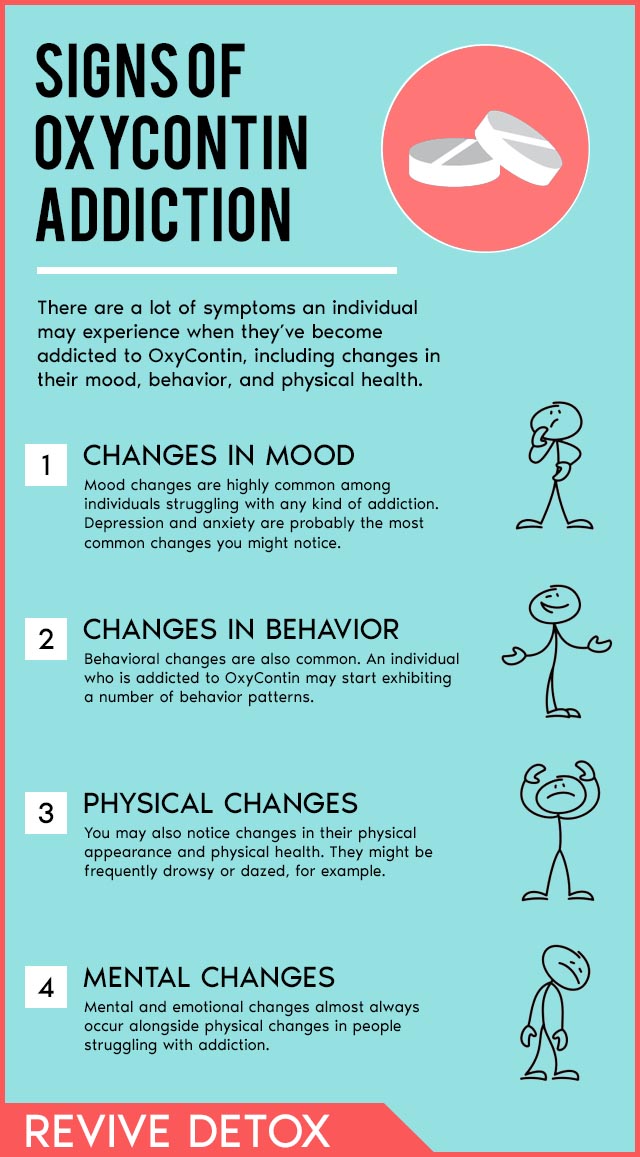Prescription drug abuse is a serious problem in the U.S., and OxyContin is one of the most frequently abused drugs.
If you think that someone you love is struggling with an addiction to OxyContin, it’s important to do your research and learn as much as you can before trying to help them overcome their condition.
Don’t know much — or anything — about OxyContin addiction?
Keep reading. Everything you need to know is explained below.
What Is OxyContin?
OxyContin is a brand name prescription painkiller. The primary active ingredient in OxyContin is oxycodone.
OxyContin is most commonly used to relieve pain associated with severe injuries and chronic conditions like cancer and arthritis.
OxyContin contains between 5 and 120 milligrams of oxycodone. It’s a long-lasting drug that provides pain relief for up to 12 hours.
Why Is OxyContin so Addicting?
OxyContin is highly addictive. This has to do, in part, with the fact that it contains such a high concentration of oxycodone.
When the drug was initially formulated, researchers believed that the high concentration, which is meant to be released slowly over time, would make the drug less habit-forming.
That hasn’t been proven to be the case, though.
Many people experience a sense of euphoria when they consume OxyContin, but their body quickly gets used to that level of relief and requires more of the medication to experience the same effect.
By crushing their tablets and snorting, swallowing, or injecting them (after they’ve been diluted with water), people are able to experience the effects of OxyContin much faster.
When it’s consumed in this way, OxyContin’s effects are similar to the effects brought on by other narcotics like heroin.
Signs of OxyContin Addiction

There are a lot of symptoms an individual may experience when they’ve become addicted to OxyContin, including changes in their mood, behavior, and physical health.
If you notice any of the following signs, there’s a good chance your loved one is struggling and could benefit from addiction treatment.
Changes in Mood
Mood changes are highly common among individuals struggling with any kind of addiction. Depression and anxiety are probably the most common changes you might notice.
Someone addicted to OxyContin may also experience dramatic mood swings, with periods of euphoria followed by periods of extreme irritability or aggression.
Changes in Behavior
Behavioral changes are also common. An individual who is addicted to OxyContin may start exhibiting the following behavior patterns:
- Lying about using or the amount they used
- Hiding their medication from others
- Borrowing or stealing medication
- Visiting many different doctors in order to obtain multiple prescriptions
- Frequently “losing” prescriptions and needing to get them replaced
It’s also not uncommon for people addicted to OxyContin to experience financial problems. As a result, they may begin borrowing or stealing money from their friends and family to cover the cost of their habit.
They might begin to neglect their responsibilities at home or at work, too, or start having relationship problems.
Physical Changes
You may also notice changes in their physical appearance and physical health. They might be frequently drowsy or dazed, for example.
They might also experience the following symptoms:
- Dizziness
- Frequent itching
- Digestive issues (nausea, vomiting, constipation, etc.)
- Low blood pressure
- Headaches
- Sweating
- Dry mouth
- Constricted pupils
You may notice track marks on their arms if they’ve been injecting crushed and diluted OxyContin.
Mental and Emotional Changes
Mental and emotional changes almost always occur alongside physical changes in people struggling with addiction.
In addition to depression and anxiety, you might notice other symptoms of mental illness, including paranoia or obsessive thoughts and behaviors.
In some cases, they may even begin to experience hallucinations and delusions.
Side Effects of OxyContin Addiction
If an individual is addicted to OxyContin, they’ll almost always experience withdrawal symptoms when they go too long without consuming the drug.
Some of the most common withdrawal symptoms include:
- Anxiety and/or depression
- Nausea and/or vomiting
- Fever
- Sweating and chills
- Muscle weakness
- Muscle aches
- Insomnia
Panic attacks are also common among addicts when they are going through withdrawal.
OxyContin Addiction Risk Factors
Anyone can become addicted to OxyContin, no matter their age, race, gender, or socioeconomic position. At the same time, though, some people are more prone to addiction than others.
Some researchers found that addicts have fundamental differences in their brains than people who don’t struggle with addiction. These abnormalities make it harder for addicts to exercise self-control.
In addition to brain abnormalities, the following risk factors have been linked to an increased risk of OxyContin addiction:
- A family history of addiction
- Having experienced abuse as a child
- Having experienced a serious trauma (as a child or adult)
- Suffering from a mental illness (depression, anxiety, etc.)
Growin up or living in an environment in which drugs are frequently abused or easily accessible can also increase the likelihood that someone will struggle with addiction.
OxyContin Addiction Treatment
In most cases, it’s best for someone struggling with an addiction to OxyContin to seek help from a rehabilitation facility.
Whether they seek in-patient or out-patient treatment, working with qualified professionals at a rehabilitation facility can help them ensure they’re getting the care they need.
A rehabilitation facility will provide them with access to resources that will help them through the detoxification process and minimize withdrawal symptoms.
They’ll also have access to counseling and support groups. These resources are designed to help addicts change their behaviors and learn to cope with stressors and triggers in a healthy way to reduce the risk of relapse.
Get Help Today
Are you or someone you love struggling with OxyContin addiction? If so, help is out there.
At Revive Detox in Los Angeles, we offer a variety of addiction treatment programs to help individuals get back on their feet and make lasting changes to improve their quality of life.
Contact us today by phone or through our online form to learn more about our services or to schedule a meeting with a clinician.Most PPO Health
